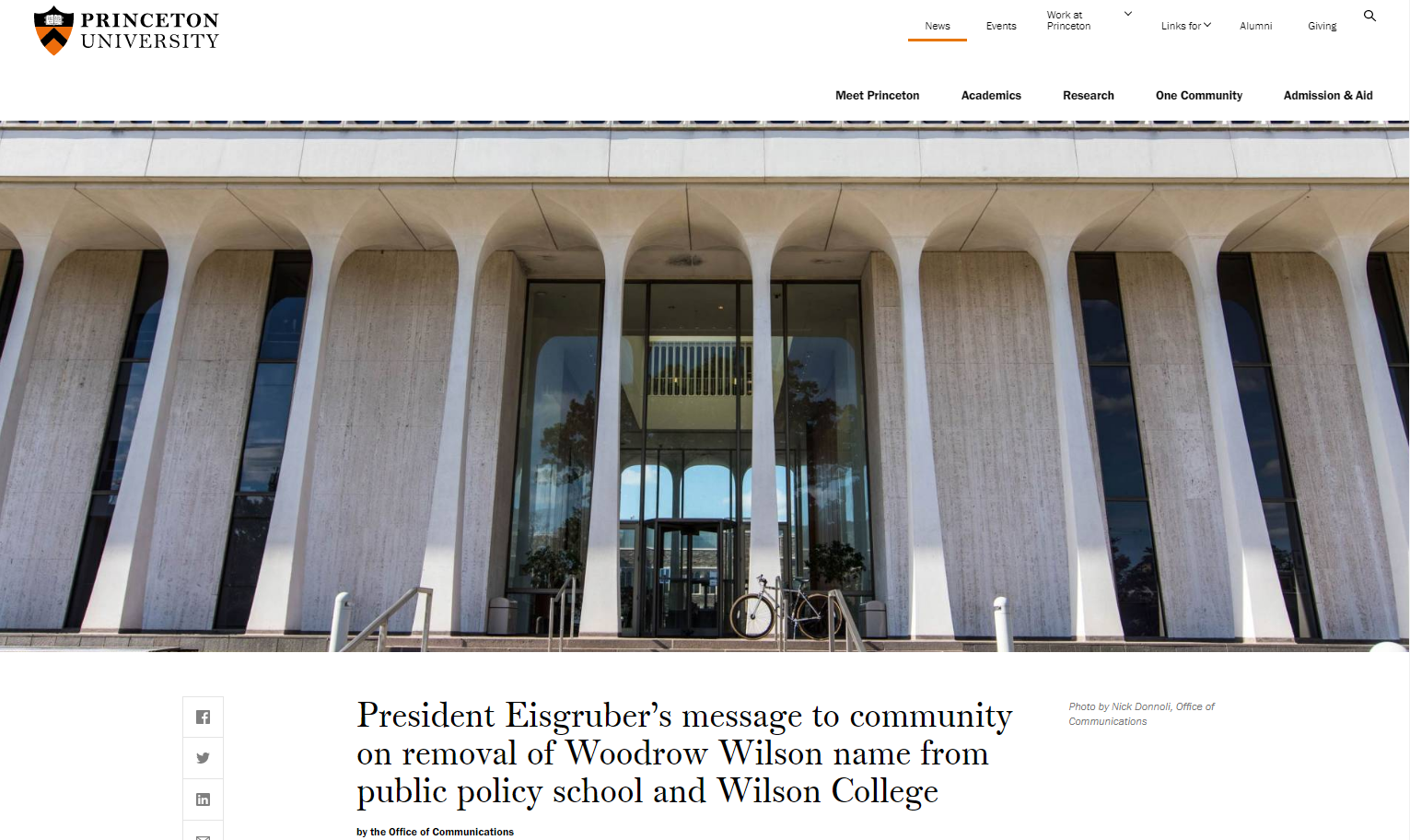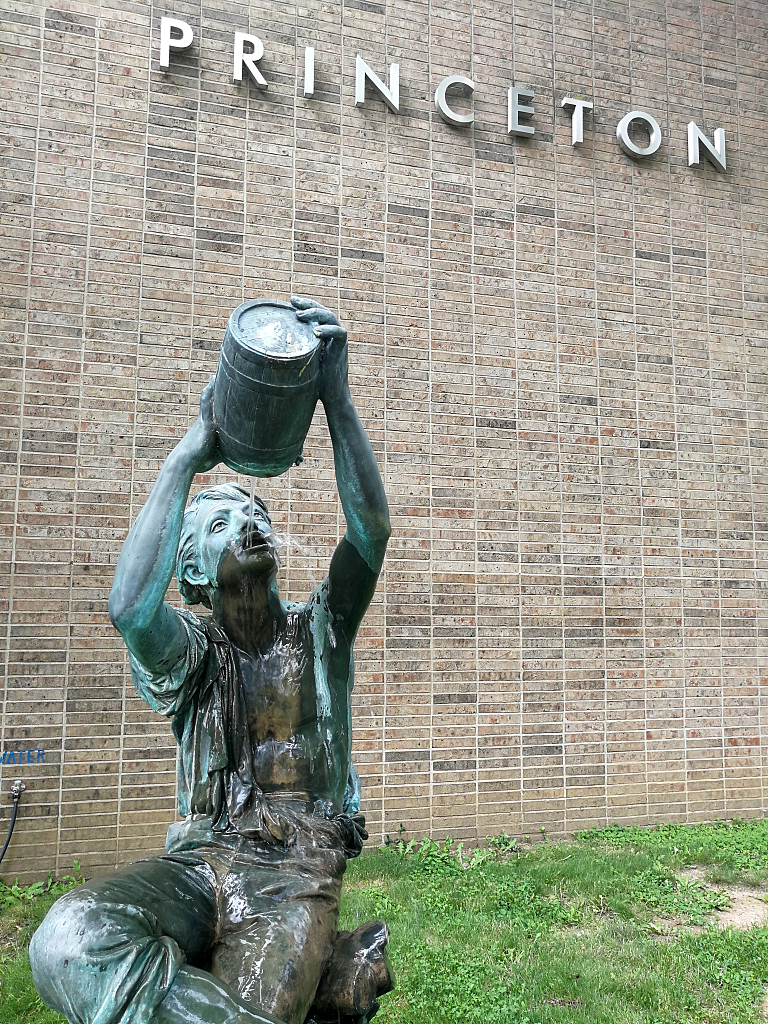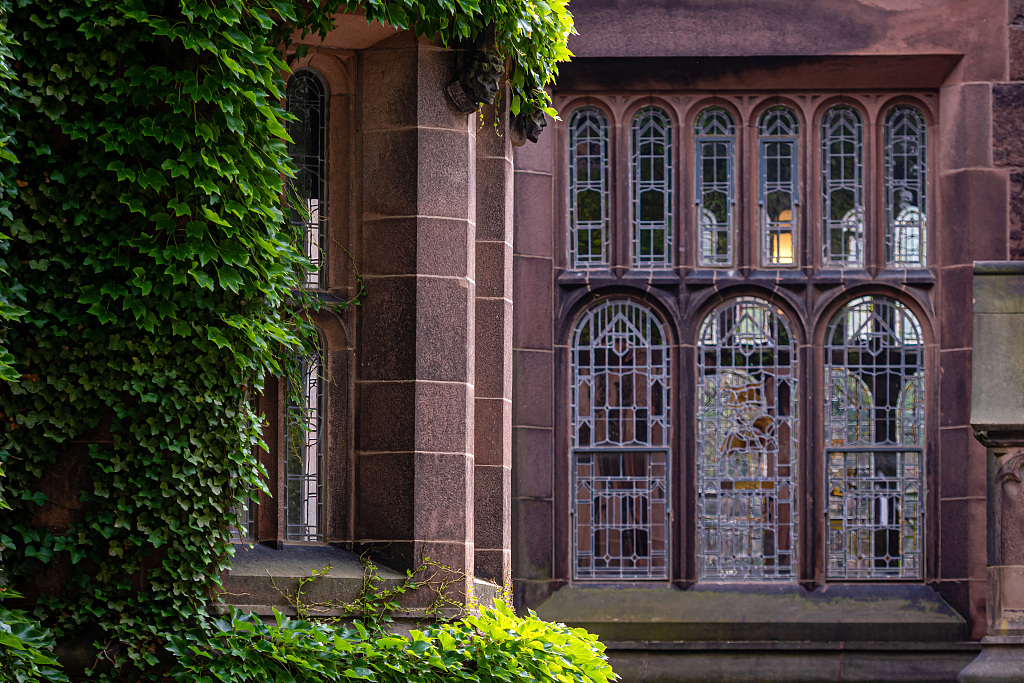Princeton University will remove former President Woodrow Wilson's name from its School of Public and International Affairs and one of its residential colleges as his "racist views and policies make him an inappropriate namesake," the university's president, Christopher L. Eisgruber, announced Saturday.
The Princeton University Board of Trustees voted to remove the former president's name on Friday, Eisgruber said in a public letter to the university community.
The public policy school will instead be known as "The Princeton School of Public and International Affairs," while the residential college will be called "First College," according to Eisgruber's letter.
Noting the decision was on his recommendation, the university president said that "the trustees concluded that Woodrow Wilson's racist thinking and policies make him an inappropriate namesake for a school or college whose scholars, students, and alumni must stand firmly against racism in all its forms."

Princeton University will remove former President Woodrow Wilson's name from its School of Public and International Affairs and one of its residential colleges. /Screenshot via Princeton University
Princeton University will remove former President Woodrow Wilson's name from its School of Public and International Affairs and one of its residential colleges. /Screenshot via Princeton University
"Wilson's racism was significant and consequential even by the standards of his own time. He segregated the federal civil service after it had been racially integrated for decades, thereby taking America backward in its pursuit of justice. He not only acquiesced in but added to the persistent practice of racism in this country, a practice that continues to do harm today," Eisgruber wrote, adding that the former president's "segregationist policies make him an especially inappropriate namesake for a public policy school."
The Ivy League school had previously considered removing Wilson's name after student activists protested in 2015, while the Wilson Legacy Review Committee determined not to remove the name.
Eisgruber noted that the board reconsidered that decision this month "as the tragic killings of George Floyd, Breonna Taylor, Ahmaud Arbery, and Rayshard Brooks drew renewed attention to the long and damaging history of racism in America."
Woodrow Wilson Award retained

Princeton University is a private Ivy League research university in Princeton, New Jersey. /VCG
Princeton University is a private Ivy League research university in Princeton, New Jersey. /VCG
Princeton, however, will retain the Woodrow Wilson Award as currently named, according to a statement issued by the Princeton board on Friday. The award is the university's highest honor for an undergraduate alumnus or alumna conferred annually on Alumni Day.
Noting that the award "is the result of a gift," the board said in its statement that when the university accepted the gift, it took on a legal obligation to name the prize for Wilson and honor his "conviction that education is for 'use' and ... the high aims expressed in his memorable phrase, 'Princeton in the Nation's Service.'"
In Saturday's statement, Eisgruber acknowledged that the decision may seem "harsh to some" since "Wilson remade Princeton" when he was president of the university, adding "Part of our responsibility as a University is to preserve Wilson's record in all of its considerable complexity."
'Not tied to a racist past'

New Jersey's Monmouth University has removed Wilson's name from one of its most prominent buildings. /VCG
New Jersey's Monmouth University has removed Wilson's name from one of its most prominent buildings. /VCG
Earlier this month, New Jersey's Monmouth University removed Wilson's name from one of its most prominent buildings and its board of trustees voted to rename the former Wilson Hall the "Great Hall at Shadow Lawn," according to The Associated Press.
Additionally, the superintendent of New Jersey's Camden school district also announced plans to rename Woodrow Wilson High School, one of the district's two high schools, to let its students "walk into a new building not tied to a racist past."
Wilson, governor of New Jersey from 1911 to 1913 and then the 28th U.S. president from 1913 to 1921, supported segregation and imposed it on several federal agencies not racially divided up to that point. He also barred Black students from Princeton while serving as university president.
The schools' decisions come amid a nationwide debate about federal monuments and statues portraying controversial historical figures, such as Confederate officials, following nationwide protests and unrest in the United States over the death of Floyd, an unarmed Black man who was pinned to the ground by a white Minneapolis police officer.
(Cover: Princeton University is a private Ivy League research university in Princeton, New Jersey. /VCG)